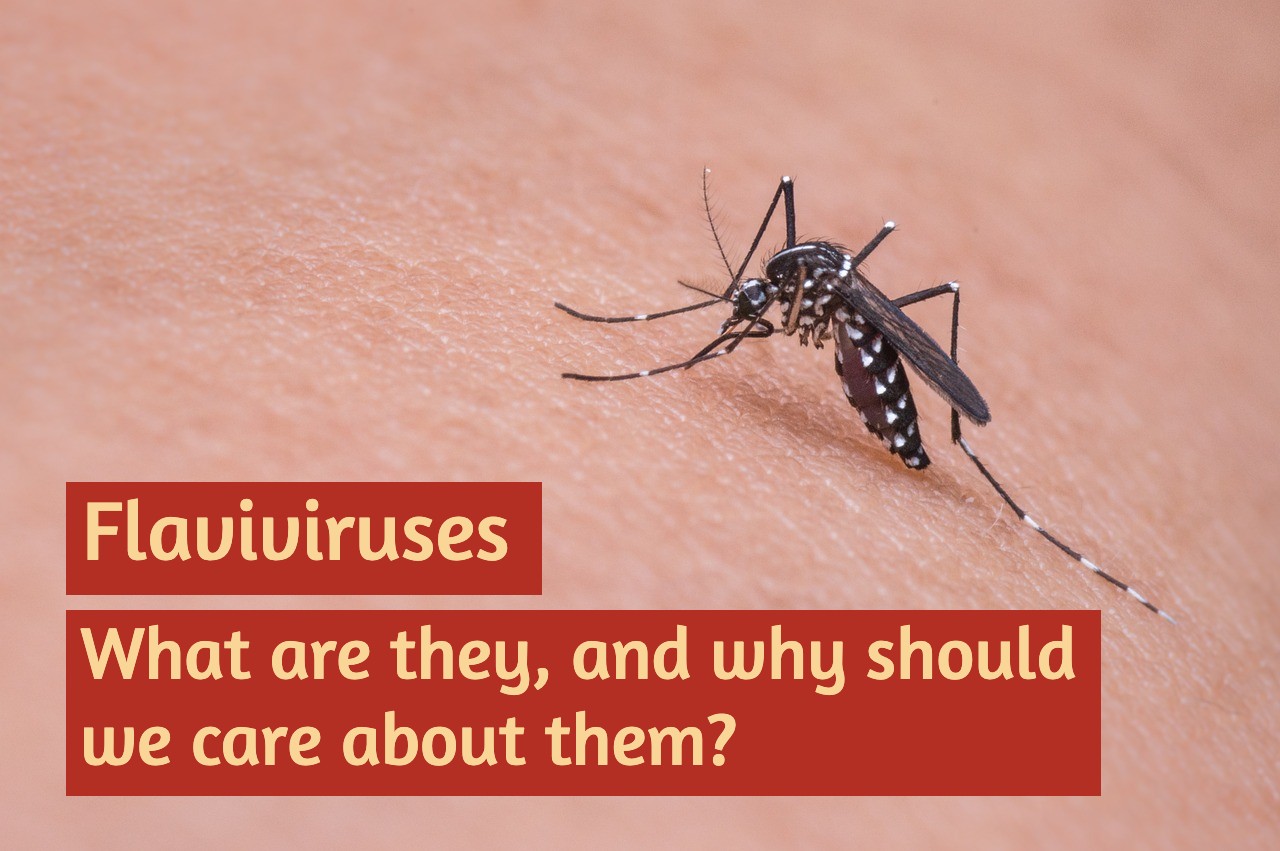Media Release: Nelson, New Zealand – 10 July 2024 – Kimer Med $10M closer to…
Flaviviruses are an increasing threat to public health
Flaviviruses are a family of viruses that cause a range of serious human diseases such as Dengue fever, Zika virus fever and Japanese encephalitis. They are important to understand due to their impact on global health and the increasing frequency of outbreaks, driven by climate and environmental factors.

What are Flaviviruses?
Flaviviruses are a family of viruses that can break out unexpectedly in human populations and cause a range of severe diseases. Notable viruses in this family include Dengue virus, Zika virus, West Nile virus, Yellow fever virus, and Japanese encephalitis virus.
Understanding Flaviviruses is crucial because of their impact on global health and the increasing frequency of outbreaks worldwide.
Flaviviruses are vector-borne viruses, meaning they are carried and transmitted by a living thing – in this case, a mosquito. Flies, sand flies, lice, fleas and ticks are other common vectors of harmful bacteria, parasites and infectious diseases.
Because they are transmitted by mosquitoes, climate and environmental conditions play a large supporting role in the spread of these viral diseases. Climate factors can cause increased rainfall, higher temperatures and higher humidity – conditions under which mosquitoes thrive and multiply. This in turn can cause more widespread outbreaks of mosquito-borne diseases, and the spread of disease into previously unaffected areas.
Global disease prevention strategies therefore focus on mosquito eradication, education and monitoring, alongside vaccine and antiviral development.
Why should we care about Flaviviruses?
You might be lucky enough to have never heard of many of these flaviviruses, but if you live in a region of the world where they are part of life, the public health implications are enormous. Collectively they affect hundreds of millions of people globally, causing widespread sickness, suffering and death, particularly in the tropical and subtropical regions of Africa, Asia and South America.
Children, pregnant women, and individuals with weakened immune systems are particularly vulnerable, and flaviviruses also pose a risk to travellers visiting regions with high transmission rates. While some infections can result in no symptoms or minor illness, the range of potentially severe impacts includes hepatitis (liver disease), vascular shock syndrome, organ failure, encephalitis (inflammation of the brain), paralysis, birth defects and the death of unborn children.
In addition to all this illness and suffering, viral diseases impose a significant burden on public health systems, and outbreaks can overwhelm hospitals, reducing access to care for other health issues. The loss of lives can cause social disruption and economic productivity losses, as well as emotional distress, fear, and grief within communities.
Where they can be measured or estimated in dollar terms, the economic impact of these diseases is significant. According to one study, the global economic burden of Dengue alone sits at around USD$9 billion annually.
Countries or regions affected by outbreaks may experience decreased tourism revenue, reduced export-import activities, and economic setbacks in sectors such as hospitality, transportation, and tourism-dependent industries. Viral diseases often disproportionately affect vulnerable populations, worsening social and economic inequalities.
Prevention and treatment of Flaviviruses
An overview of the major flaviviruses, including symptoms and treatment options is shown in the table below.
It is worth noting that there is no cure or antiviral medicine for any of these diseases, meaning treatment usually consists only of managing the patient’s symptoms with rest, fluids and pain relief.
|
Virus |
How spread |
Disease caused |
Symptoms |
Treatment |
|
Dengue (DENV) |
Mosquitoes |
Dengue fever |
High fever, fatigue, nausea, vomiting, severe muscle, bone and joint pain. Can cause internal bleeding, organ failure and death. |
No specific antiviral. Vaccine available but restricted. |
|
Zika Virus (ZIKV) |
Mosquitoes Sexual contact once infected. Through blood from mother to unborn child |
Zika virus fever |
Fever, rash, headache, joint pain, conjunctivitis (red eyes), muscle pain. Can cause muscle weakness, paralysis, brain swelling, and birth defects for pregnant women. |
No specific antiviral. No vaccine. |
|
West Nile Virus (WNV) |
Mosquitoes |
West Nile fever |
Fever, headache, body aches, joint pains, vomiting, diarrhoea. Fatigue and weakness can last for months. Can cause encephalitis (inflammation of the brain) or meningitis. |
No specific antiviral. No vaccine. |
|
Yellow Fever Virus (VF) |
Mosquitoes |
Yellow fever |
From fever, chills, headache, muscle aches to jaundice, bleeding, shock, organ failure, and sometimes death. |
No specific antiviral. Vaccine is available. |
|
Japanese Encephalitis Virus (JEV) |
Mosquitoes |
Encephalitis |
From fever and headache, to high fever, disorientation, coma, seizures, paralysis and death. Survivors can suffer permanent intellectual, behavioural or neurological damage. |
No specific antiviral. Vaccine is available. |
Because of the lack of available antiviral treatments, there are some innovative approaches being explored in the areas of vector control, such as mosquito population management and genetic modification, to reduce Flavivirus transmission.
Significant scientific efforts have resulted in the development of highly effective vaccines against Yellow Fever and Japanese Encephalitis, but some of the other flaviviruses remain more challenging.
The development of Dengue vaccines has been hindered by the need to simultaneously protect against the four types of Dengue virus as well as serious concerns about Antibody-Dependent Enhancement (ADE), a condition which can result in increased risk for severe Dengue in people who experience their first infection after vaccination. This risk has resulted in the vaccine (Dengvaxia™) being restricted to only those with confirmed previous Dengue infection.
Antiviral development is also a complex and challenging area, but one consequence of the Covid-19 pandemic is greater global interest and renewed scientific efforts in this vital area of research.
Kimer Med’s work on the development of broad-spectrum antiviral compounds is part of that effort. In June 2023 we announced that we had achieved two 100% positive results in tests against the Dengue (DENV-2) and Zika (ZIKV), two of the most significant flaviviruses. We have good reason to believe that our compound will work against other similar viruses, and producing an antiviral medication to treat and/or cure Dengue fever is now a top priority.
We are excited by, and optimistic about, the enormous impact we can have on reducing disease and suffering in the world by bringing to market a safe and affective antiviral that works against Dengue, Zika and other flaviviruses.
Image credit: Mika Mamy via Pixabay.


